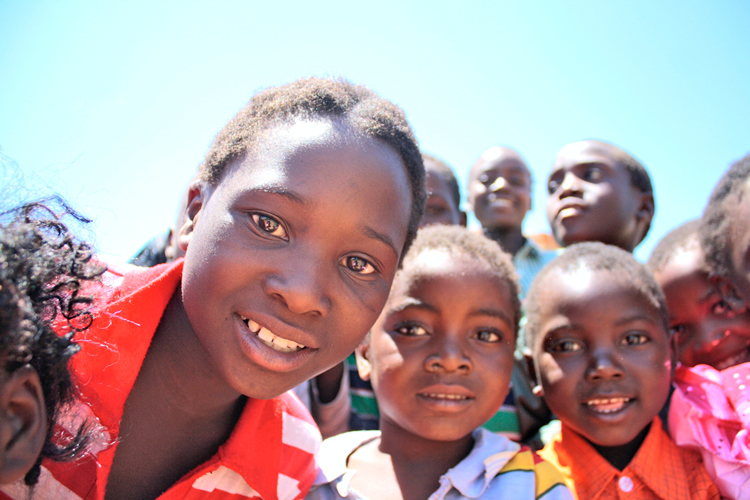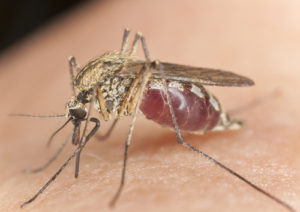Malaria is a potentially fatal mosquito-borne illness with a long history.
The parasites responsible for malaria infection were first identified around 1880. Since then, mosquitoes carrying these parasites have been found preserved in amber, believed to be 30,000,000 years old. Is malaria still a threat?
Even though malaria was eliminated in the United States in the early 1950’s, it remains a threat in other parts of the world today. There were more than 400,000 known malaria deaths throughout the world in 2018. More than 90% of malaria deaths occurred in sub-Saharan Africa. 67% of worldwide deaths were children under the age of five. If you are asking, “Is malaria still a threat,” the answer is, “Yes, for some regions of the world it is a big problem.”

Malaria is still a threat in some areas of the world.
How many cases of malaria are reported in the United States each year?
The term “elimination” means that cases of malaria are not contracted from mosquito bites that occur in the United States. The fact that malaria has been eliminated in the United States does not mean that we do not see malaria diagnoses each year. About 2,000 cases are reported yearly in the United States. These cases are contracted in other areas of the world from U.S. travelers, or are reported in individuals immigrating or traveling to the U.S. from countries, where malaria remains a threat. According to the World Health Organization, half of the world’s population is at some level of risk for malaria.
Who’s at risk for contracting malaria?
Though anyone, who is bitten by Anopheles mosquito can contract malaria, there are some, who are at higher risk of severe or fatal infection. Children under the age of five, pregnant women, and travelers from non-malarial regions are most at risk. This is due to little or no immunity to Plasmodium falciparum, the deadliest strain of malaria.

Though not at risk for malaria, we are at risk for other mosquito-borne illnesses.
Is malaria only passed through mosquito bites?
The vast majority of cases of malaria are the direct result of an Anopheles mosquito bite. However, rare cases have been reported from blood transfusions. It is also possible for unborn children to contract malaria from their mothers.
Can malaria be prevented or cured?
Malaria vaccines are in the works all across the world. To-date, there remains no vaccination for malaria. There are two types of malaria prevention methods. Travelers and high-risk individuals in malaria infection regions can be treated with antimalarial drugs. There are many drugs that can be given for preventing malarial infection. The antimalarial drug that is prescribed depends on each individual and circumstance. Even though these drugs do exist, none is 100% effective. Therefore, personal mosquito protection must also be used. This includes using 25-30% DEET mosquito repellent, protective clothing that has been sprayed with insecticide or repellent, insecticide sprayed in and around living quarters, and the use of mosquito nets.
Also read: What is the difference between repellent and pesticide?
Central Mass mosquito control for effective mosquito-borne illness prevention.
 Even though we do not have a threat for contracting malaria in the United States, there are many other mosquito-borne illnesses, which are transmitted here. We remain at risk for Zika virus, West Nile virus, and Eastern equine encephalitis. To protect your family from mosquito bites and from contracting a potentially fatal illness, professional mosquito barrier spray is your best bet. Effective mosquito yard sprays are available in both EPA-registered and all-natural varieties to repel or eliminate mosquitoes around your home for a couple of weeks at a time.
Even though we do not have a threat for contracting malaria in the United States, there are many other mosquito-borne illnesses, which are transmitted here. We remain at risk for Zika virus, West Nile virus, and Eastern equine encephalitis. To protect your family from mosquito bites and from contracting a potentially fatal illness, professional mosquito barrier spray is your best bet. Effective mosquito yard sprays are available in both EPA-registered and all-natural varieties to repel or eliminate mosquitoes around your home for a couple of weeks at a time.
